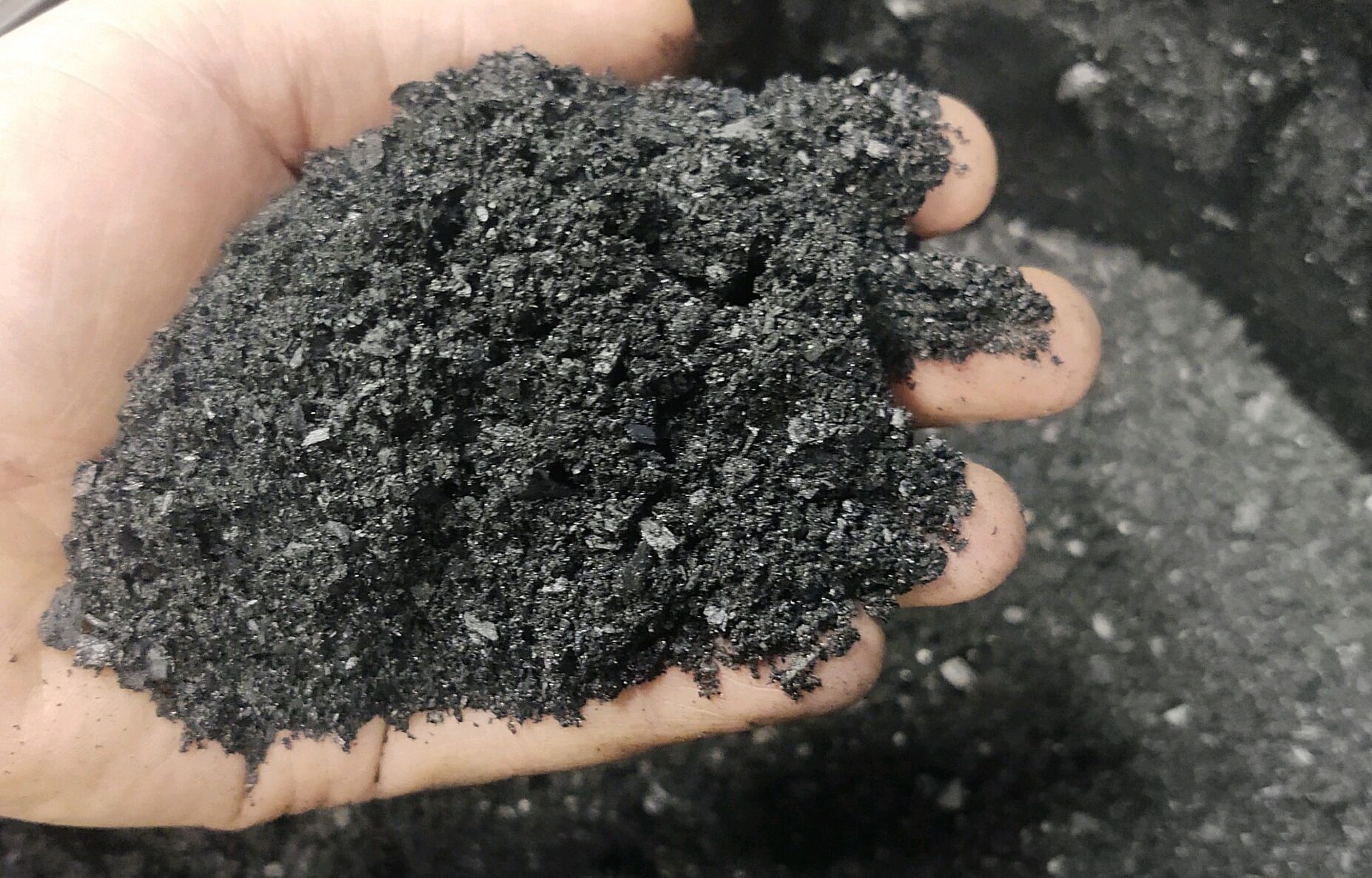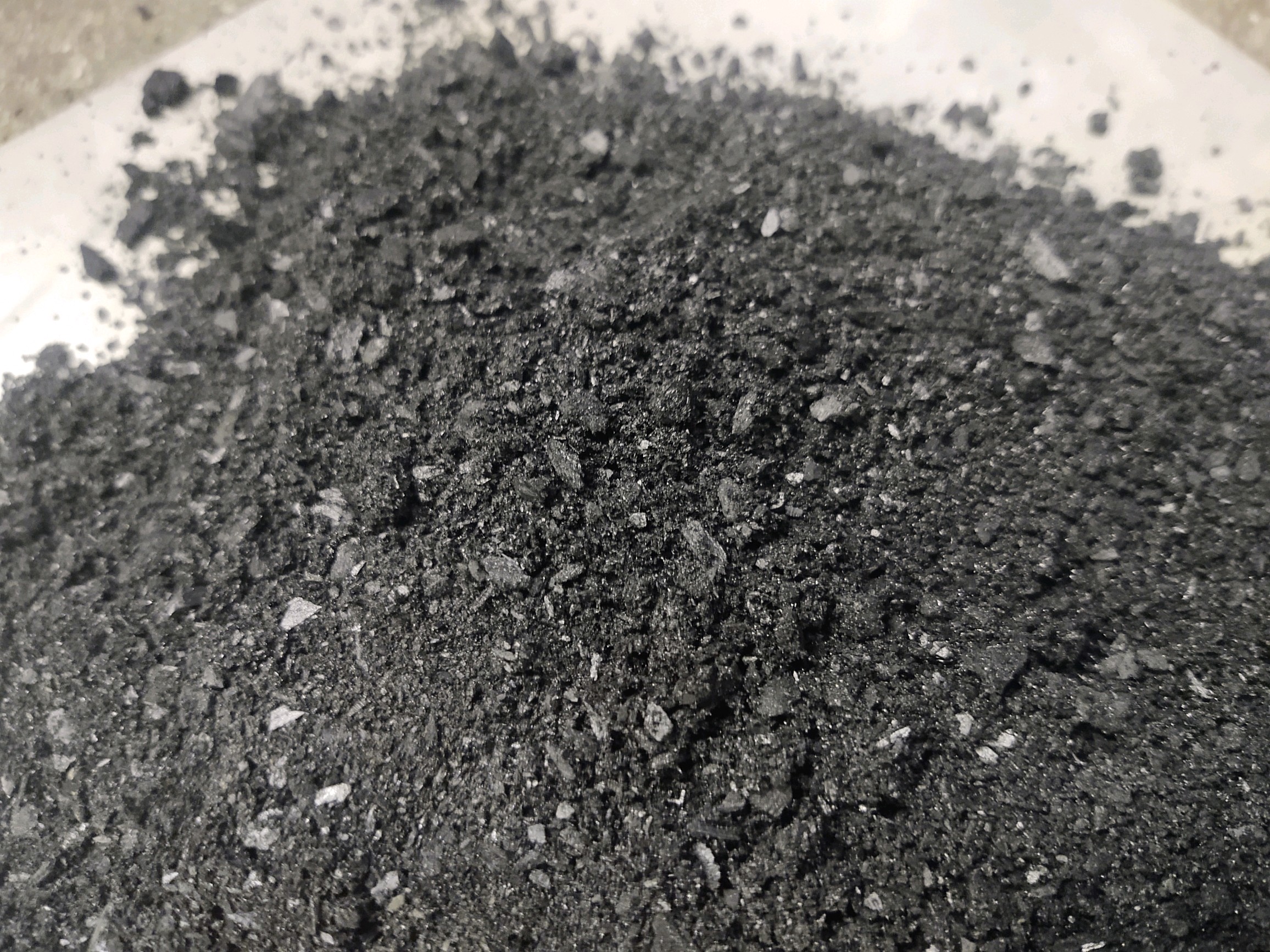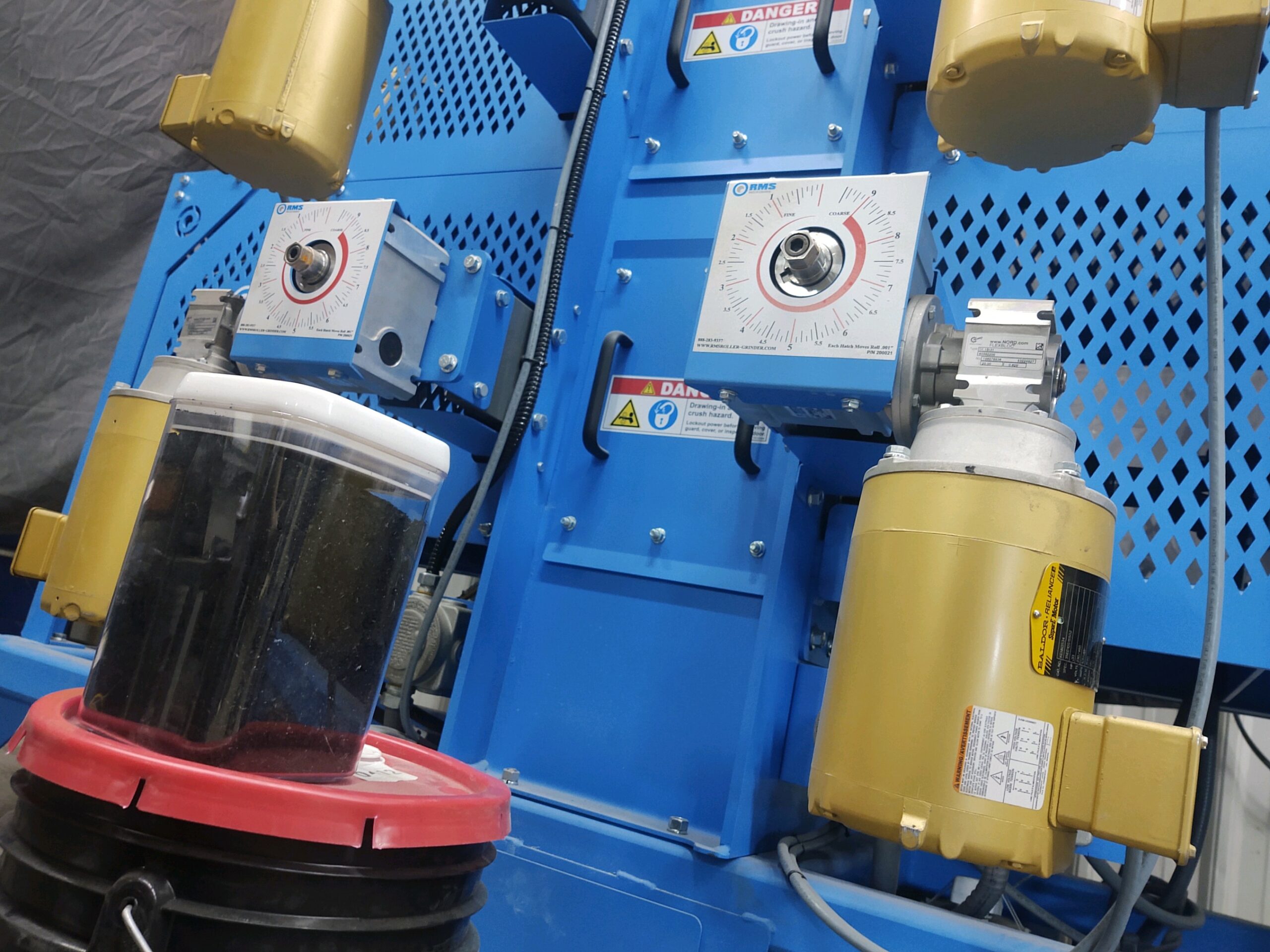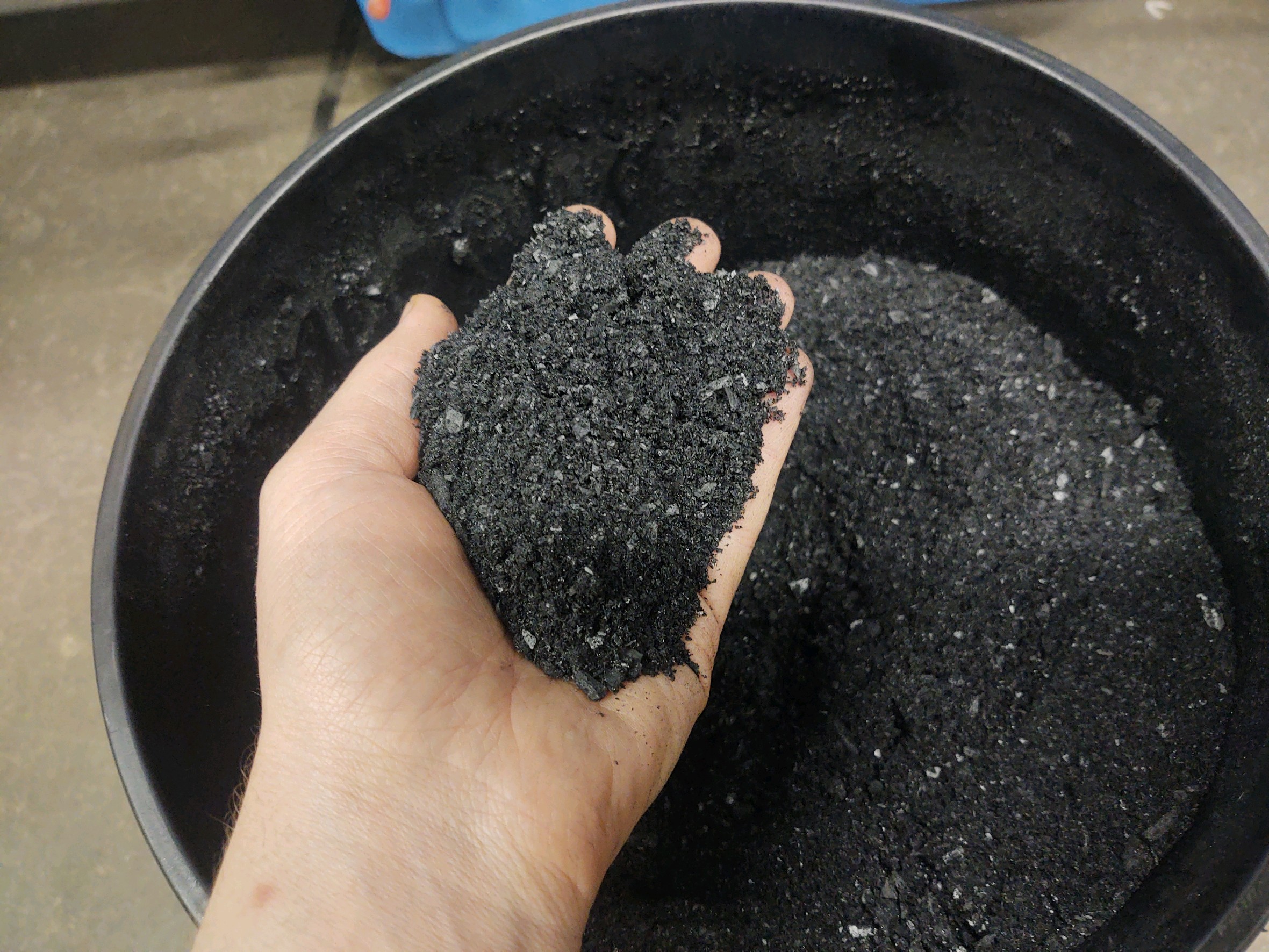
CHALLENGE

Biochar Now sought a new grinding method that would reduce costs, improve quality, and minimize heat and particulate matter. They also needed a specific spring rate to crush biochar without affecting residual wood. Their current hammermill caused biochar to break into small pieces, resulting in waste and lower quality.
SOLUTION

RMS Roller-Grinder worked with Biochar Now to develop a single-pair mill roller grinder prototype that stripped the biochar off the wood without sizing the wood, which made the two products easier to separate for optimal production and a high-quality product.
RESULT

Biochar Now has the size distribution they need. The system breaks down charcoal, but not residual wood, all with minimal heat and particulate matter in a low-maintenance processing system.
Overview:
BioChar Now is a biochar production company with a patented slow pyrolysis system to convert biomass into carbon. The result is over 95% pure carbon—the highest quality carbon used for applications such as water filtration and plastics where lesser quality carbon cannot be used.
Since crushing biochar requires the right biochar production equipment, this biochar production company needed custom solutions to deliver their high-quality product.
They have been working with RMS for two years, and have multiple single-pair roller mills installed, with several more in production for their new locations. This partnership has optimized their milling process and reduced on-site problems.
The Problem:
 When developing a prototype mill for their carbon product, BioChar Now originally worked with an engineering firm that designed a hammer mill to be the primary breakdown system.
When developing a prototype mill for their carbon product, BioChar Now originally worked with an engineering firm that designed a hammer mill to be the primary breakdown system.
The hammer mill posed significant issues. Due to the fact that grinding biochar can wear out the components of machinery quickly, the hammer mill experienced a lot of wear and heat, which posed a risk for the charcoal to catch on fire as it was broken down.
After experiencing these issues with the hammer mill prototype, Biochar Now tried a different roller grinder from this same engineering firm that also didn’t work. They needed a machine that would do the primary breakdown on their finished product, that contained fewer wear items, and that would generate less particulate matter.
Biochar Now heard about RMS Roller-Grinder through a third-party that had already partnered with the company. Biochar decided to see if RMS could deliver the industrial biochar equipment they needed.
Solution:
 Biochar Now decided to try out a roller grinder from RMS to determine if the machine would work for their prototype. According to the client, RMS was responsive and willing to do all the testing required to get them the product they needed. The client was confident in choosing RMS because they knew they could get them the size profiles they needed for their prototype.
Biochar Now decided to try out a roller grinder from RMS to determine if the machine would work for their prototype. According to the client, RMS was responsive and willing to do all the testing required to get them the product they needed. The client was confident in choosing RMS because they knew they could get them the size profiles they needed for their prototype.
While the original roller mill Biochar Now installed was a prototype that required some trial and error in establishing spring rates and tensions for biochar sizing, the result was that they got the size breakdown they wanted. Unlike the hammer mill, the roller mill was able to break down the brittle biochar, but not break down the less brittle residual wood.
Ultimately, the biochar crusher was able to crush what they needed and not crush what they wanted to preserve.
Results:
 Biochar Now still uses the original prototype system RMS developed for biochar processing. From that original prototype testing, the client was able to determine that the system did indeed work.
Biochar Now still uses the original prototype system RMS developed for biochar processing. From that original prototype testing, the client was able to determine that the system did indeed work.
From there, they were able to scale the machine and get a bigger roller grinder with a bigger opening and larger rollers. This allowed Biochar Now to meet the throughput goals they had for their processing system.
When running a hammer mill, Biochar Now was constantly replacing components such as hammers and screens due to the heavy wear the biochar put on the system. The client now has efficient biochar production equipment that meets their demands, but is also low-maintenance.
With the RMS single-pair mill, the general operation does not result in nearly as much wear. Maintenance only includes greasing the components and checking the tension. This is vastly reduced downtime and machine maintenance compared to continuously replacing components in a hammer mill.
Biochar Now also says their single-pair mill from RMS:
- Does not have a hard limitation on throughput as a hammer mill would.
- Results in less waste because it generates less particulate matter and dust collection.
- Is more efficient than a hammer mill because of its high throughput.
The company is currently building two new systems with RMS for their new location in Virginia. They are also in the process of building four new roller grinders in the next year as they open new locations around the country.
Ultimately, the client says that they have total confidence in RMS, and that the RMS team continues to deliver. The company has assisted with everything from testing to installation and kept the entire process simple. RMS continues to be supportive and responsive even years after the roller mill installation.
Request a quote from RMS Roller-Grinder to discover how we can optimize your biochar production process with the right equipment and support.
